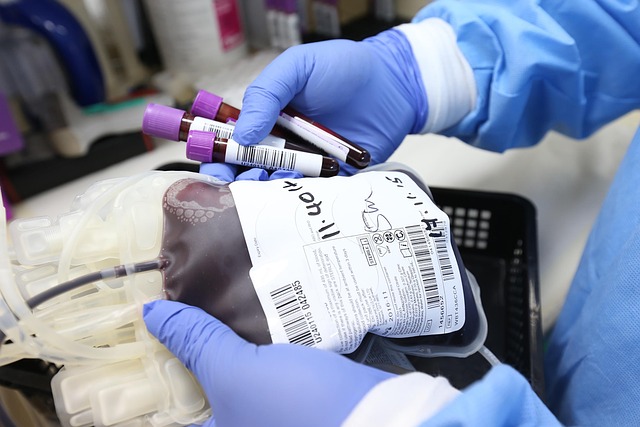Heart Failure Could Be Silent and Deadly!
Heart trouble is often associated with dramatic events, but the reality is that warning signs of a heart attack can occur a month beforehand. Some of these include chest discomfort, fatigue, and shortness of breath. A heart attack is a medical emergency in which the blood supply to the heart is severely reduced or blocked. Don't ignore the warning signs.

What Is a Heart Attack and Why Is It So Dangerous?
A heart attack, medically known as myocardial infarction, occurs when blood flow to a part of the heart is blocked, causing damage to the heart muscle. This blockage is typically caused by a buildup of fat, cholesterol, and other substances that form plaque in the coronary arteries. When a plaque ruptures, a blood clot forms around it, potentially blocking blood flow to the heart muscle. Without oxygen and nutrients, the heart tissue begins to die within minutes.
What makes heart attacks particularly treacherous is that they can occur with minimal symptoms or symptoms that are easily mistaken for other conditions. This “silent” nature often leads to delayed treatment, resulting in more extensive heart damage or even death. Recognizing the early warning signs is crucial for seeking timely medical intervention.
Understanding the Subtle Signals: What Your Body Is Telling You
Many heart attack survivors report experiencing warning signs days or weeks before their cardiac event. These signals are often subtle and easily attributed to other less serious conditions. Common warning signs include unusual fatigue, sleep disturbances, shortness of breath during normal activities, mild chest discomfort that comes and goes, and a general feeling that something isn’t right.
These symptoms may appear intermittently and vary in intensity, making them easy to dismiss. For example, you might experience chest discomfort while walking up stairs one day, but feel fine the next day. This inconsistency often leads people to rationalize these symptoms as temporary issues rather than warning signs of a serious cardiac problem.
Aches and Discomfort: Beyond the Classic Chest Pain
While the classic symptom of a heart attack is chest pain or discomfort that feels like pressure, squeezing, or fullness, premonitory signs can be more varied and subtle. Many people experience discomfort in other areas of the upper body, including:
-
Pain or discomfort in one or both arms, particularly the left arm
-
Pain radiating to the back, neck, jaw, or stomach
-
A sensation of pressure or tightness in the center of the chest that may come and go
-
Uncomfortable pressure or pain in the center of the chest lasting more than a few minutes
These aches may be mild and intermittent in the weeks leading up to a heart attack. They might be dismissed as muscle strain, indigestion, or stress-related tension, particularly when they resolve on their own. However, these transient symptoms could be warning signs that should not be ignored, especially in individuals with risk factors for heart disease.
Digestive Disturbances: When Stomach Issues Signal Heart Problems
Heart problems can sometimes masquerade as digestive issues, which is why they’re often overlooked. In the weeks before a heart attack, some people experience:
-
Nausea or vomiting without apparent cause
-
Indigestion or heartburn that doesn’t respond to antacids
-
Abdominal pain or discomfort that can’t be explained by food intake
-
Unexplained bloating or feeling unusually full after small meals
These digestive disturbances are particularly common warning signs in women, who are more likely than men to experience atypical heart attack symptoms. Because these symptoms mimic common gastrointestinal problems, they’re frequently attributed to acid reflux, food sensitivities, or stomach viruses rather than heart issues. This misinterpretation can lead to dangerous delays in seeking appropriate medical care.
Emotional and Mental Clues: When Your Mind Signals Body Distress
Heart problems don’t just manifest physically—they can affect mental and emotional states as well. In the weeks leading up to a heart attack, some people experience:
-
Unexplained anxiety or a feeling of impending doom
-
Unusual or excessive fatigue that isn’t relieved by rest
-
Sleep disturbances, including insomnia or excessive sleepiness
-
Irritability or mood changes that seem out of character
-
Difficulty concentrating or confusion
The connection between these symptoms and heart problems is often overlooked because they’re commonly attributed to stress, depression, or anxiety disorders. However, these emotional and cognitive changes can occur when the heart isn’t functioning optimally and isn’t delivering sufficient oxygen to the brain.
Individual Differences and Risk Factors: Who Needs to Be Most Vigilant?
Not everyone experiences the same warning signs before a heart attack, and some people may experience no symptoms at all. Several factors influence how heart attack warning signs manifest and who needs to be most attentive to subtle symptoms:
-
Age: Older adults are more likely to experience atypical symptoms
-
Gender: Women often experience different symptoms than men, including more pronounced fatigue, shortness of breath, and digestive disturbances
-
Medical conditions: People with diabetes may have blunted pain perception due to nerve damage
-
Genetics: Family history of heart disease increases risk and may influence symptom patterns
-
Lifestyle factors: Smoking, obesity, and sedentary habits can all impact how heart disease progresses
Understanding your personal risk factors is crucial for interpreting potential warning signs correctly. Those with multiple risk factors should be particularly vigilant about subtle changes in their health and wellbeing, as the threshold for seeking medical attention should be lower for high-risk individuals.
When to Seek Emergency Medical Attention
If you experience chest discomfort, shortness of breath, or other concerning symptoms that last more than a few minutes or come and go, don’t wait—call 911 immediately. Emergency medical services can begin treatment as soon as they arrive, potentially saving heart muscle and your life. Remember that it’s always better to have a false alarm than to ignore symptoms of a heart attack.
Prevention remains the best medicine. Regular check-ups, maintaining a heart-healthy lifestyle, controlling risk factors like high blood pressure and cholesterol, and staying attuned to your body’s signals can all help protect your heart health. The subtle signs your body sends before a heart attack aren’t just whispers—they’re potentially life-saving messages that deserve your full attention.
This article is for informational purposes only and should not be considered medical advice. Please consult a qualified healthcare professional for personalized guidance and treatment.




